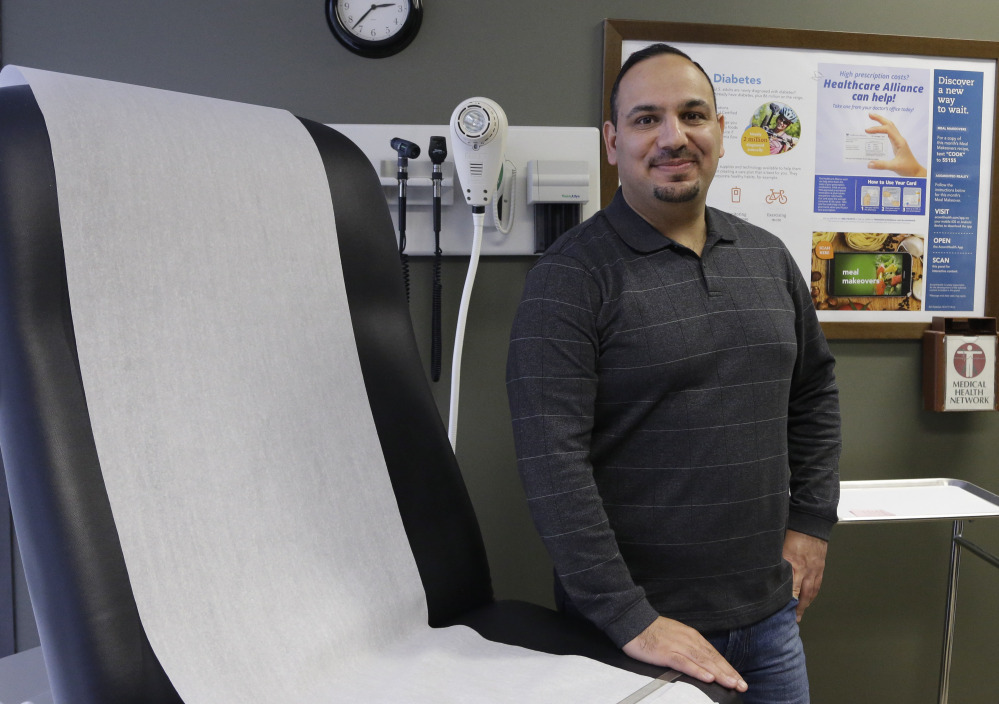JEFFERSON CITY, Mo. — A new Missouri law poffered a first-of-its-kind solution to the physician shortage plaguing thousands of U.S. communities: Medical school graduates could start treating patients immediately, without wading through years of traditional residency programs.
Following Missouri’s lead, similar measures were enacted in Arkansas and Kansas and considered in Oklahoma. The idea appeared to be a new model for delivering medical care in regions with too few physicians to meet needs.
Yet more than 18 months after that first law passed, Missouri regulators are still trying to make it work. And not a single new doctor has gone into practice in any of the three states as a result of the new laws.
“You’ve got the need for services on one hand, and you’ve got a group of people that are capable of providing those services. But we’re not making it happen,” said Dr. Keith Frederick, an orthopedic surgeon and Missouri House member who is frustrated by the delays in implementing the legislation he sponsored.
There are more than 6,200 places nationwide with a shortage of primary care physicians, says the U.S. Department of Health and Human Services.
Universities have been launching new medical programs and expanding student enrollment in an attempt to meet an even larger projected doctor shortage caused by retirements and an increased demand for physicians under President Obama’s health insurance overhaul and state Medicaid expansions. Total U.S. medical school enrollment approached 110,000 this past year, up almost one-third over a decade ago.
Residency programs, which provide an additional three to six years of post-graduate training needed for physicians to be certified, have also grown but haven’t kept up with demand.
When foreign medical school graduates are added to the mix of U.S. students, more than 8,600 applicants were denied residency positions this year. That’s an increase of more than 50 percent from 2005.
That bottleneck is due partly to a 1997 federal law that limits the growth in Medicare funding for residency programs.
States have taken a number of steps to get more medical professionals in the field. Some have allowed specially trained nurses, physician assistants and pharmacists to assume greater roles. Others have kicked in state money to expand residency positions.
The Missouri law creates a license for an “assistant physician,” defined as someone who graduated from medical school within the past three years and passed the first two rounds of licensing exams within the last two years, but who has not completed a residency program.
The law allows them to provide primary care services in “medically underserved” areas as long as they are supervised by another physician. They can work as an “assistant physician” indefinitely, essentially sidestepping the residency requirements.
Once the program is operating, supporters expect it to serve as a prototype that will spread beyond the Midwest.
“It kind of allows us to be a trailblazer on the issue,” said Jeff Howell, the government relations director for the Missouri State Medical Association.
But Missouri’s new rules may not take effect until fall 2016, and supporters of the law are growing frustrated with each passing month in limbo.
Sara Bubenik said she graduated two years ago from medical school at Oregon Health & Science University with about $350,000 in loans but had to retake the licensing exams several times before passing and has subsequently been unable to get a residency position. Although the Missouri law could offer her another route, the implementation delays mean she could soon be disqualified by the law’s time limits on testing and graduation.
“It’s heartbreaking for me, because I’m not going to be able to be a physician,” Bubenik said in a telephone interview from New York, where she now is pursuing a master’s degree in public health. “It’s also really disappointing that I owe so much money and will never get to pay it back.”
The Missouri law is opposed by some of the nation’s most influential medical organizations, including the American Medical Association.
Missouri’s program has drawn interest from doctors across the country, including many not actually eligible because they graduated too long ago.
Among them is Dr. Ammar Hashim, a native of Iraq who says he graduated from medical school in Baghdad in 2005 and is now a U.S. citizen.
If he could take advantage of Missouri’s new law, Hashim said, “I would put my clothes and my kids’ clothes in their bags, and we would go right away.”
Send questions/comments to the editors.



Comments are no longer available on this story